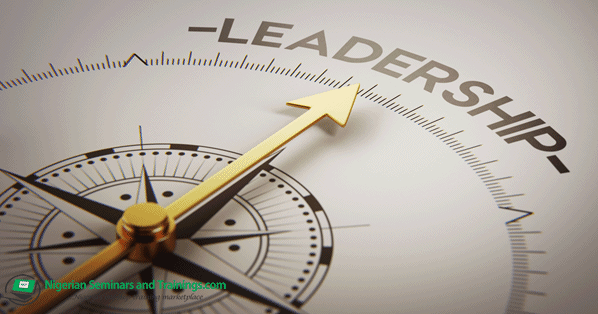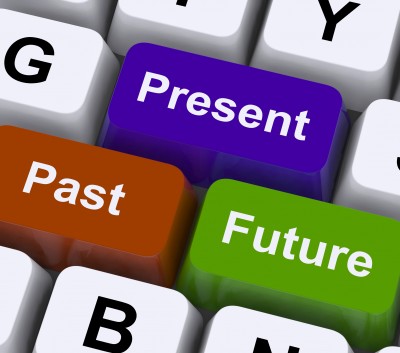 |
Building A Great Personal Brand |
Many people think personal branding is only associated with sports stars, celebrities and popular figures. The reality is that you are already a brand whether you know it or not. What you need to do is to be conscious of it and make it work in your best interests. In our present world, the way we are perceived influences the results we get. Now more than ever, it makes a lot of sense to invest in your personal brand and reap the accruing rewards.
The concept of branding appears to be vague to most people who often consider it as the way a product or company is perceived but branding goes beyond perception. Some even consider it to be a concept that is interchangeable with terms like impression or goodwill or reputation. Branding is so much more. A look at the Merriam Webster dictionary's definition of a brand still does not suffice. It defines it as a category of products that are made by a particular company and have a particular name.
Unless we have a thorough understanding of the two basic concepts on which brands are built, we will not fully grasp the concept of personal branding. These concepts are image and reputation. They are quite different even though they appear similar on the surface. As an individual, your image is the perception of others about you or how they see or regard you. On the other hand, your reputation as an individual is what people know about you based on their experiences with your person. Image is what people see from afar unlike reputation which is what they experience when they meet you.
Reputation comes from either first-hand or second-hand knowledge about an individual. You may be perceived by another person as being accommodating and friendly. When the person interacts with you and he/she find that to be true, then it means your reputation matches your image and this helps enhance your brand.
Personal brand is a delicate blend of an individual's image and reputation, whether favorable or not and affects the way others relate with that individual. An ideal situation is when an individual has both a positive image and a positive reputation. When either of them or both are negative, then your personal brand needs to be fixed and realigned with your personal brand goals.
Aside from being positive or negative, your personal brand is also unique but may bear similarities with those of others. The current president of the United States is known to be controversial and confrontational amongst other attributes that he possesses, that's his personal brand. As an individual, you should stand out and be known for something. What comes to your mind when you think of Richard Branson? Initiative, courage, simplicity, that's his personal brand.
Whether you are a popular figure or not, you are a brand. Your personal brand is what people feel (image) and know (reputation) about you. You need two main types of resources to build a great personal brand - offline and online resources. In the past, only the former was considered as inputs into your personal brand but the digital age that we live and work in has made the latter more relevant than ever.
Typical offline resources include
- Physical Appearance - always look good. People often say, "dress the way you want to be addressed."
- Business Card - your call card speaks volumes about your person. Invest in a well-designed business card of high quality.
- Curriculum Vitae - your resume speaks for you in your absence, do all you can to make it look impressive and appealing.
- Personal Network - your contacts and connections can distinguish you from others with similar skills or expertise.
- Published Works - Aside from being an author, being a columnist or feature writer in a newspaper or magazine adds to your personal brand.
- Individual Achievements - your awards, honors and accomplishments will do your personal brand a lot of good. Do your best to ensure these six critical aspects of your personal brand are well taken care of. This would require a lot of effort on your part, but it would be worth it at the end of the day.
The most common online resources include:
- Digital Community - this represents your social media following, handles, friends, profiles and influencers. In fact, the size of your followership or friendship on social media reflects the strength of your personal brand. Social media posts and tweets made by sports and entertainment celebrities with a lot of clout are reportedly worth hundreds or even thousands of dollars.
- Personal Blogs - having a personal website can help you share useful stuff and interact with people on the Internet. Such blogs may eventually be converted into money-making ventures. A typical blog has no geographical boundaries and can extend your influence beyond a local audience. It is no longer surprising that some well-known blogs are worth hundreds of thousands of dollars.
- Digital Content - there are a variety of means for reaching out to people and communicating your message: pictures, audios and videos, articles, books, podcasts, videocasts etc. Take a good look at some creative industries like entertainment and public speaking and you would find individuals who have launched their careers using digital content posted on social media.
It may sometimes be necessary to invest funds in developing your offline and online resources and such investments are usually worth it especially in the long run. Corporate and personal brands are so powerful these days that they often have greater value than material or physical assets. In recent times, relatively new ecommerce and social networking sites are now worth many times the value of brick-and-mortar organizations that have been in existence for decades. It appears to be unfair but that's the reality now.
It is not enough to build a great personal brand without enjoying the benefits that comes with it. This implies that we must translate our personal brands into assets; an asset is anything that adds value or generates revenue or other advantageous benefits. These benefits include but are not limited to:
- A better income or salary if you have a paid job and even getting the job in the first place. It can also facilitate your promotion in the workplace.
- Better and bigger contracts and clients if you run a business. Your personal brand can enable you charge higher fees or rates than your competitors.
- Growing personal network of like-minded people both within and outside your profession. Eventually, even your network will contribute to your personal brand.
If you want to build a great personal brand, then roll up your sleeves and get to work. The journey starts now. You are a personal brand, let this fact sink into your consciousness. When this happens, you will take deliberate steps to enhance rather than damage your personal brand.
You have views or opinions about this post? Let’s hear you. Drop your comments in the comments box below.
| Tags: | Personal Brand |
Related Articles

|
Gain Report - Nigeria: Retail foods - steady growth of Nigeria’s retail food sectorReport Highlights: Nigeria's retail food imports are estimated at $750 million in 2010 and projected to increase by 20 percent in 2011. Changing demographics and lifestyles are resulting in increasing consumer demand and preference for packaged retail foods. Domestic food processing is underdeve [Read more]
|
Posted: 14 years ago |

|
Gain Report - Nigeria: insecurity and fuel price hike threaten food security in NigeriaReport Highlights: The Government of Nigeria’s (GON) attempt to remove its gasoline subsidy on the first day of year 2012 resulted in an industrial strike, severely crippling economic activity for the week that it lasted. After lengthy negotiations with organized labor, the GON was able to rem [Read more]
|
Posted: 14 years ago |

|
The World of Work is Changing, and You Should Too: An Incisive Report on the Future of WorkSynopsis
The way we work has changed in significant ways over the last century and we are on the verge of witnessing unprecedented changes in our work in the years to come. Unless we prepare for these drastic changes, we may not be able to cope with its adverse effects on individuals and t [Read more]
|
Posted: 7 years ago |


